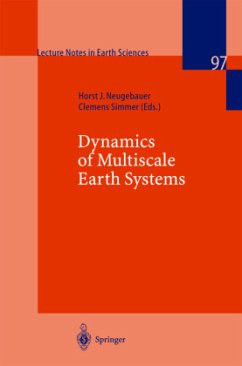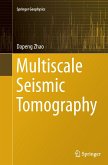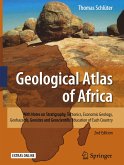Today, earth and life scientists are increasingly confronted with the puzzling complexity of phenomena enmeshed in a seemingly boundless web of interrelations. To deal with this complexity and to further our ability to analyze and predict system behavior, science is learning to transcend reliance on averages and 'permanence' and to consider the fundamental multiple-scale character of phenomena. The contributions collected here detail techniques of multi-scale and fractal analysis that enhance the study of geo-complexity. They represent a multi-disciplinary approach to understanding the geological history of a section of the Lower Rhine River. They have in common the underlying question of how our qualitative modelling of natural phenomena do or do not prove the existence of representative averages.
In many aspects science becomes conducted nowadays through technology and preferential criteria of economy. Thus investigation and knowledge is evidently linked to a speci?c purpose. Especially Earth science is confronted with two major human perspectives concerning our natural environment:sustainability of resources and assessment of risks. Both aspects are expressing urgent needs of the living society, but in the same way those needs are addressing a long lasting fundamental challenge which has so far not been met. Following on the patterns of economy and technology, the key is presumed to be found through a devel- mentoffeasibleconceptsforamanagement ofbothournaturalenvironmentand in one or the other way the realm of life. Although new techniques for obser- tion and analysis led to an increase of rather speci?c knowledge about particular phenomena, yet we fail now even more frequently to avoid unforeseen impli- tions and sudden changes of a situation. Obviously the improved technological tools and the assigned expectations on a management of nature still exceed our traditional scienti?c experience and accumulated competence. Earth- and Life- Sciences are nowadays exceedingly faced with the puzzling nature of an almost boundless network of relations, i. e. , the complexity of phenomena with respect to their variability. The disciplinary notations and their particular approaches arethusnolongeraccountingsu?cientlyfortherecordedcontextofphenomena, for their permanent variability and their unpredictable implications. The large environmental changes of glacial climatic cycles, for instance, demonstrate this complexity of such a typical phenomenology.
In many aspects science becomes conducted nowadays through technology and preferential criteria of economy. Thus investigation and knowledge is evidently linked to a speci?c purpose. Especially Earth science is confronted with two major human perspectives concerning our natural environment:sustainability of resources and assessment of risks. Both aspects are expressing urgent needs of the living society, but in the same way those needs are addressing a long lasting fundamental challenge which has so far not been met. Following on the patterns of economy and technology, the key is presumed to be found through a devel- mentoffeasibleconceptsforamanagement ofbothournaturalenvironmentand in one or the other way the realm of life. Although new techniques for obser- tion and analysis led to an increase of rather speci?c knowledge about particular phenomena, yet we fail now even more frequently to avoid unforeseen impli- tions and sudden changes of a situation. Obviously the improved technological tools and the assigned expectations on a management of nature still exceed our traditional scienti?c experience and accumulated competence. Earth- and Life- Sciences are nowadays exceedingly faced with the puzzling nature of an almost boundless network of relations, i. e. , the complexity of phenomena with respect to their variability. The disciplinary notations and their particular approaches arethusnolongeraccountingsu?cientlyfortherecordedcontextofphenomena, for their permanent variability and their unpredictable implications. The large environmental changes of glacial climatic cycles, for instance, demonstrate this complexity of such a typical phenomenology.









